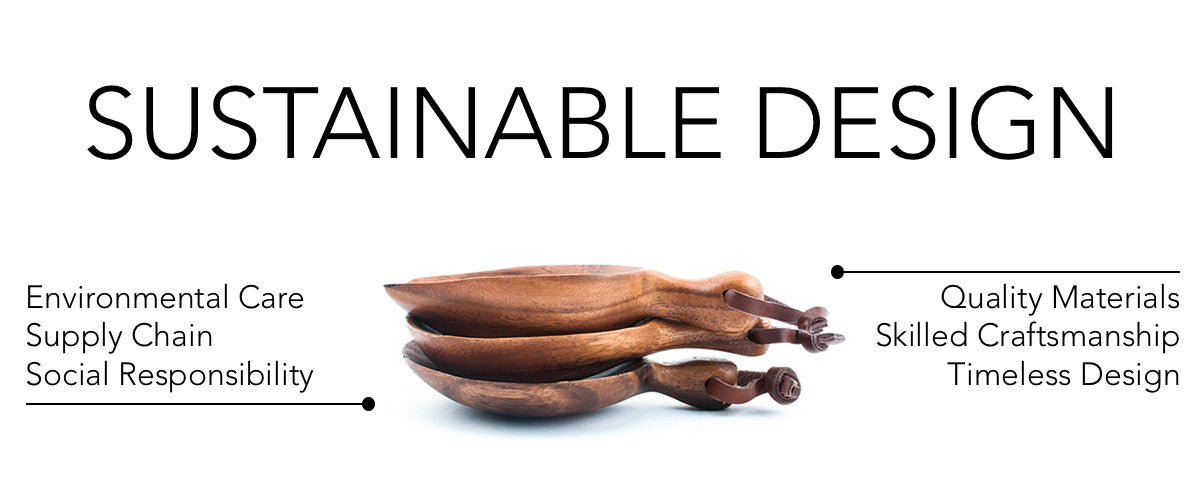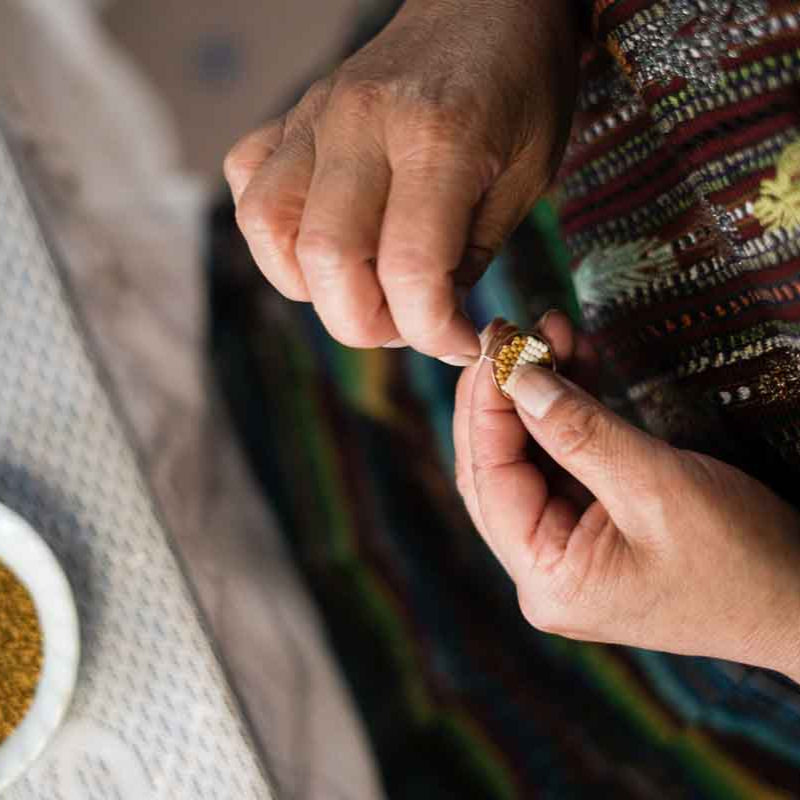Sustainability

Sustainability is a two way street which involves both the manufacturing and market sides. What value does a fair trade basket have if it falls apart after a few uses? Or what is the true cost of a purse if the planet and people were exploited while making it?
The way we see it, the manufacturing and design both contribute to the sustainability of an item.
Manufacturing:
Environmental Care
Care needs to be given to ensure manufacturing is a process that can be renewed and not stripped bare. Water supply, air quality, protection of natural ecosystems, and safe waste management are all under consideration.
Supply Chain
A supply chain includes all the people and resources it took to get a product from the supplier to the customer. It includes raw materials, manufacturing, packaging, and distributing.
Social Responsibility
Social responsibility refers to how a corporation cares for the people and the materials involved in its supply chain. It includes good labor practices, adherence to human rights, a safe work environment, and fair living wages.
Market:
Quality materials
Form follows function, meaning the right materials need to be assigned to the right tasks. A delicate linen, while beautiful and renewable, may not be the right choice for an everyday tote.
Excellent craftsmanship
One of the most important aspects of sustainability involves how well a product is made. Will it hold up to the task it was given?
Timeless design
While trends are fun, they are often short lived. A design that stands the test of time is less likely to be cast aside as fads come and go.

